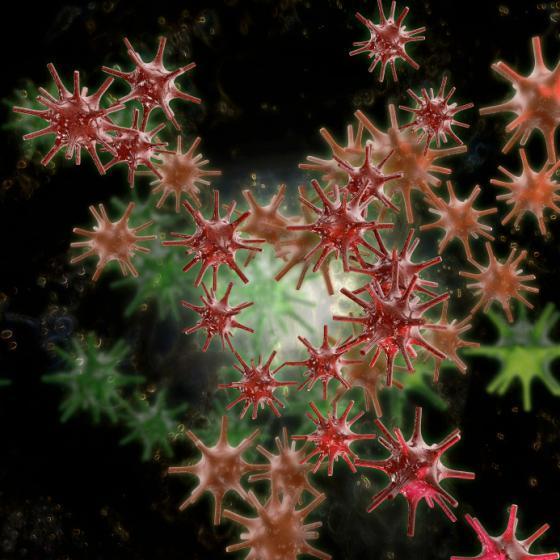BREAKING! COVID-19 Re-Infections: More Cases Of Documented COVID-19 Re-infected Cases Emerging. First Hong Kong, Now Belgium and Netherlands
Source: COVID-19-Re-Infections Aug 26, 2020 5 years, 4 months, 17 hours, 27 minutes ago
COVID-19 Re-Infections: First it was the case of a 33 year old Hong Kong man who local scientist claim was the first case of a documented COVID-19 reinfection. The genetic tests revealed that a 33-year-old man returning to Hong Kong from a trip to Spain in mid-August had a different strain of the coronavirus than the one he'd previously been infected with in March, said Dr. Kelvin Kai-Wang To, the microbiologist who led the work.

The male patient had mild symptoms the first time and none the second time; his more recent infection was detected through screening and testing at the Hong Kong airport.
Dr To added, "It shows that some people do not have lifelong immunity to the SARS-CoV-2 coronavirus if they have already had it. We do not know how many people can get re-infected. There are probably more out there."
The research report has been accepted by the journal Clinical Infectious Diseases but not yet published, and some independent experts urged caution until full results are available.
Now, two other European patients are confirmed to have been re-infected with the coronavirus, raising concerns about people's immunity to the virus as the world struggles to tame the pandemic.
The new documented cases are fueling fears about the effectiveness of potential vaccines against the virus, which has killed hundreds of thousands of people, though experts say there would need to be many more cases of re-infection for these to be justified.
Dr Marc Van Ranst, a Belgian virologist said the Belgian case was a woman who had contracted COVID-19 for the first time in March and then again in June. Further cases of re-infection were likely to surface, he warned.
He told media, "We don't know if there will be a large number. I think probably not, but we will have to see, noting that COVID-19 had only been in humans for less than a year.”
He added, "Perhaps a vaccine will need to be repeated every year, or within two or three years. It seems clear though that we won't have something that works for, say, 10 years.”
Dr Van Ranst, who sits on some Belgian COVID-19 committees, said in cases such as the Belgian woman's in which symptoms were relatively mild, the body may not have created enough antibodies to prevent a re-infection, although they might have helped limit the sickness.
The Dutch National Institute for Public Health in the Netherlands said it had also observed a Dutch case of re-infection.
Leading Dutch virologist Dr Marion Koopmans was quoted by Dutch broadcaster NOS as saying the patient was an older person with a weakened immune system.
Dr Koopmans said cases where people have been sick with the virus a long time and it then flares up again were better known.
However a true re-infection, as in the Dutch, Belgian and Hong Kong cases, required genetic testing of the virus in both the first and second infection to see whether the two instances of the virus differed slightly.
Dr Koopmans, an adviser to the Dutch government, said re-infections had been expected.
Sh
e added, "That someone would pop up with a re-infection, it doesn't make me nervous. We have to see whether it happens often."
In reality numerous cases of re-infections had been reported in the early part of the pandemic in China, South Korea, Japan and Italy but despite even some being documented in local Chinese and South Korean medical journals, it was believed that there was a concerted effort by a certain health agency and also pharma and biotech companies and certain governments to downplay the issue as billions of dollars were at stake in the ‘vaccine game; coupled with a concerted effort to not create panic among the common people due to economic reasons.
Dr Margaret Harris, WHO spokeswoman told a U.N. briefing in Geneva regarding the Hong Kong case that, while anecdotal reports of reinfections had surfaced now and then, it was important to have clear documentation of such cases.
Certain experts say it is likely that such cases are starting to emerge because of greater testing worldwide, rather than because the virus may be spreading differently.
However Dr David Strain, a clinical senior lecturer at the University of Exeter and chair of the British Medical Association's medical academic staff committee, said the cases were worrying for several reasons.
He said, "The first is that it suggests that previous infection is not protective. The second is that it raises the possibility that vaccinations may not provide the hope that we have been waiting for."
Some genomic specialists and virologist are also warning that a number of variant strains of the SARS-CoV-2 are emerging fast and circulating around and these could also have bearings in term of re-infections and vaccine protection. Again, there has also been a concerted effort to silent research with regards to mutations of the SARS-CoV-2 coronavirus by the same entities but this time involving medical journals and media with big pharma money at play.
The next 12 months will be a very interesting period as it is expected that many new revelations would emerge during the actual ‘second wave.’
For more on
COVID-19 Re-Infections, keep on logging to Thailand Medical News.
